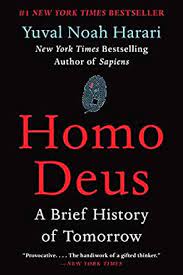The latest significant contribution from a renowned thinker, arriving after a decade-long hiatus, comes in the form of a remarkably succinct volume that brings forth fresh perspectives on life’s most profound queries. Delving into inquiries such as the origin of the universe, the purpose of our existence, the enigma of existence versus nothingness, the true nature of reality, and the intricacies of the universe’s finely tuned laws, this book seeks to unravel these ultimate mysteries. Additionally, it raises the pivotal question of whether the apparent design of the cosmos implies a benevolent creator or is explicable through scientific means.
While such questions were historically confined to philosophical discourse, they now reside at the confluence of scientific, philosophical, and theological dialogues, despite often sparking disagreements. The collaborative effort of Stephen Hawking and Leonard Mlodinow introduces a comprehensive understanding of the universe’s enigmas, communicated in a universally accessible language that highlights their brilliance and simplicity.
Within the pages of “The Grand Design,” the authors delve into the realm of quantum theory, challenging the conventional concept of the universe having a sole existence or linear history. Instead, they propose that all conceivable histories of the universe coexist simultaneously. This notion disrupts the conventional notion of causality when applied to the entirety of existence. They argue that the absence of a definite past suggests that we influence history through our observations, rather than history predetermining our presence. Furthermore, they advance the idea that our existence is a consequence of quantum fluctuations during the universe’s early stages, introducing the groundbreaking concept of a “multiverse.” This concept posits that numerous universes spontaneously originated from nothingness, each governed by distinct sets of natural laws.
Throughout the book, Hawking and Mlodinow scrutinize the established understanding of reality and advocate for a “model-dependent” theory of reality as the most pragmatic approach. Their exploration culminates with a captivating evaluation of M-theory, the lone plausible contender for a comprehensive “theory of everything” that governs both us and our universe. Should this theory be substantiated, it would fulfill Einstein’s pursuit of a unified explanation and stand as a pinnacle of human rationality.
“The Grand Design” emerges as a succinct, enlightening, and beautifully illustrated handbook to revolutionary discoveries that challenge established comprehension, even unsettling deeply ingrained convictions. It is bound to educate and stimulate readers in unparalleled ways.




